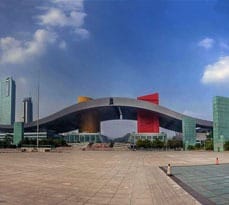President Xi Jinping has firmly yoked his presidency to the idea of the “Chinese Dream” and private enterprise is excited. But how easy will it be to deliver?
 Taking its cue from American version, the Chinese Dream has been presented as an ambitious and comprehensive blueprint for rejuvenating the country. The concept is proving to be one that defies easy definition, but official news sources in China are adamant that it is a manifestation and development of “Socialism with Chinese characteristics”, rather than an ideology designed to supplant it.
Taking its cue from American version, the Chinese Dream has been presented as an ambitious and comprehensive blueprint for rejuvenating the country. The concept is proving to be one that defies easy definition, but official news sources in China are adamant that it is a manifestation and development of “Socialism with Chinese characteristics”, rather than an ideology designed to supplant it.
According to Simon Learmount, director of the MBA and Executive MBA programmes at Cambridge Judge Business School, the Chinese Dream can be summed up as “the opportunity for all individuals to attain their full potential, alongside the revitalisation of Chinese society as a whole”. Speaking at Realising the Chinese Dream, a forum that CJBS hosted in Beijing this March, he said: “It is about individual flourishing, individual prosperity but also collective wealth, well-being and social harmony. The phrase is about realising latent potential, but in a measured, Chinese fashion.”
The President’s vision
President Xi Jinping has elaborated on the dream concept on a number of occasions, proposing five spheres in which it holds significance: national, personal, historical, global and antithetical. For entrepreneurs – both domestic and foreign – it is the first of these categories that is most likely to be of relevance. On this “national” level, commentators have identified the Chinese Dream with the ambition to become a “moderately well-off society” (in the phrase much used by Chinese premier Deng Xiopang in the 1970s) by around 2020, and to become a fully developed nation by 2050.
The increasing importance of private enterprise
Recent policy announcements suggest that the government identifies these goals with a managed decline in the power of traditional state-owned enterprises, and the willingness to permit private enterprise and NGOs greater participation in the economy. At the Third Plenary Session of China’s 18th Central Committee last November, the Chinese government asserted that markets should play a “decisive role” in the country’s economy – a form of words that was widely seen as greatly significant.
Cautious progress
Nevertheless, the Chinese Dream is characterised by cautious progress rather than a headlong leap into market liberalisation. At its heart remains the social policy that personal gain must have community-wide benefit. Addressing delegates at the March forum, Mayor Jie Tang of Shenzhen said: “The market economy has enabled people to create opportunities and to share opportunities on an equal basis… The ultimate objective of getting rich is to achieve common prosperity, by which it means extending the benefits of reform and opening up to all people.”
Perhaps above all, the Chinese Dream is a work in progress. Simon Learmount said: “I think Xi Jinping tapped into an important, and inspirational idea. But this idea needs to be elaborated – it is only just beginning to be unpacked.
“I think the Chinese Dream will, in due course, inspire Chinese people in a similar way that the American Dream has motivated countless Americans over the past century, and the many facets and interpretation of just what this dream means will emerge over time.”
Image credits
Shenzhen Center Panorama
Credit: Photo / illustration by 11×16 Design Studio

This work is licensed under a Creative Commons Attribution-NoDerivatives 4.0 International License.

